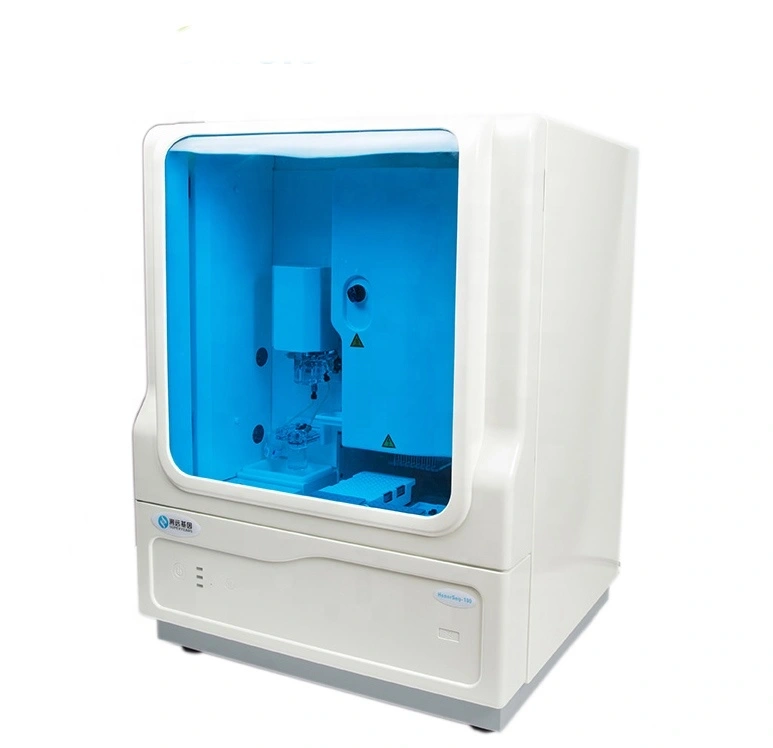
Privacy statement: Your privacy is very important to Us. Our company promises not to disclose your personal information to any external company with out your explicit permission.

A Genetic Analyzer, gene sequencing technology, and MLPA all play crucial roles in genetic analysis and molecular diagnostics:
1. **Genetic Analyzer**:
- A genetic analyzer is a sophisticated instrument used to detect and analyze genetic variations present within a sample. It is employed in both research and clinical settings for genetic testing, DNA fingerprinting, and sequencing applications.
- These analyzers are capable of processing samples to detect variations such as SNPs (single-nucleotide polymorphisms), insertions/deletions, and other genetic mutations. They help in identifying disease-causing mutations, understanding genetic diversity, and studying gene expression patterns.
2. **Gene Sequencing**:
- Gene sequencing refers to the process of determining the precise order of nucleotides (i.e., adenine, cytosine, guanine, and thymine) within a DNA molecule. This information is crucial for understanding genetic variations, gene function, and genetic inheritance.
- There are several types of gene sequencing technologies, including Sanger sequencing, Next-Generation Sequencing (NGS), and third-generation sequencing methods such as PacBio and Oxford Nanopore. These technologies have immensely contributed to genomics, pharmacogenomics, and personalized medicine.
3. **MLPA (Multiplex Ligation-dependent Probe Amplification)**:
- MLPA is a molecular technique used to detect copy number variations (CNVs) and small deletions or duplications within the genome. It involves the simultaneous amplification of multiple targets, followed by capillary electrophoresis to analyze the relative copy number of specific DNA sequences.
- MLPA is particularly valuable in identifying genetic conditions caused by changes in the number of copies of specific genes, such as certain congenital disorders or certain types of cancer.
In summary, a genetic analyzer PCR System is a tool used to analyze genetic variations, while gene sequencing technologies provide the means to determine the precise sequence of DNA. MLPA, on the other hand, is a specialized method used to detect copy number variations and small genetic changes. Together, these technologies and techniques play integral roles in studying genetics, diagnosing genetic disorders, and furthering our understanding of the molecular basis of various diseases.
December 23, 2021
May 02, 2022
April 23, 2024
April 23, 2024
Real-Time PCR Instrument Display The specifications of a Thermal Cycler Real Time PCR System Machine can vary depending on the model and manufacturer. Here are some common specifications you might...
Real-Time PCR Instrument Display A Thermal Cycler Real Time PCR System machine, also known as a real-time PCR thermal cycler or qPCR (quantitative PCR) machine, is a device used in molecular biology...
Real-Time PCR Instrument Display Choosing the right Thermal Cycler Real Time PCR System machine is crucial for the success of your experiments. Here are some key factors to consider when selecting a...
Real-Time PCR Instrument Display Thermal Cycler Real Time PCR System machines are sophisticated instruments that offer a range of features and capabilities essential for performing real-time...
Email to this supplier
December 23, 2021
May 02, 2022
April 23, 2024
April 23, 2024
Send Inquiry

Mr. Mr. Léi
Tel:0086-025-57561788
Fax:
Mobile Phone:+8617353779332
Email:wanglei@superyears.com
Address:Nanjing, Jiangsu
Related Products List
Mobile Site


Privacy statement: Your privacy is very important to Us. Our company promises not to disclose your personal information to any external company with out your explicit permission.

Fill in more information so that we can get in touch with you faster
Privacy statement: Your privacy is very important to Us. Our company promises not to disclose your personal information to any external company with out your explicit permission.